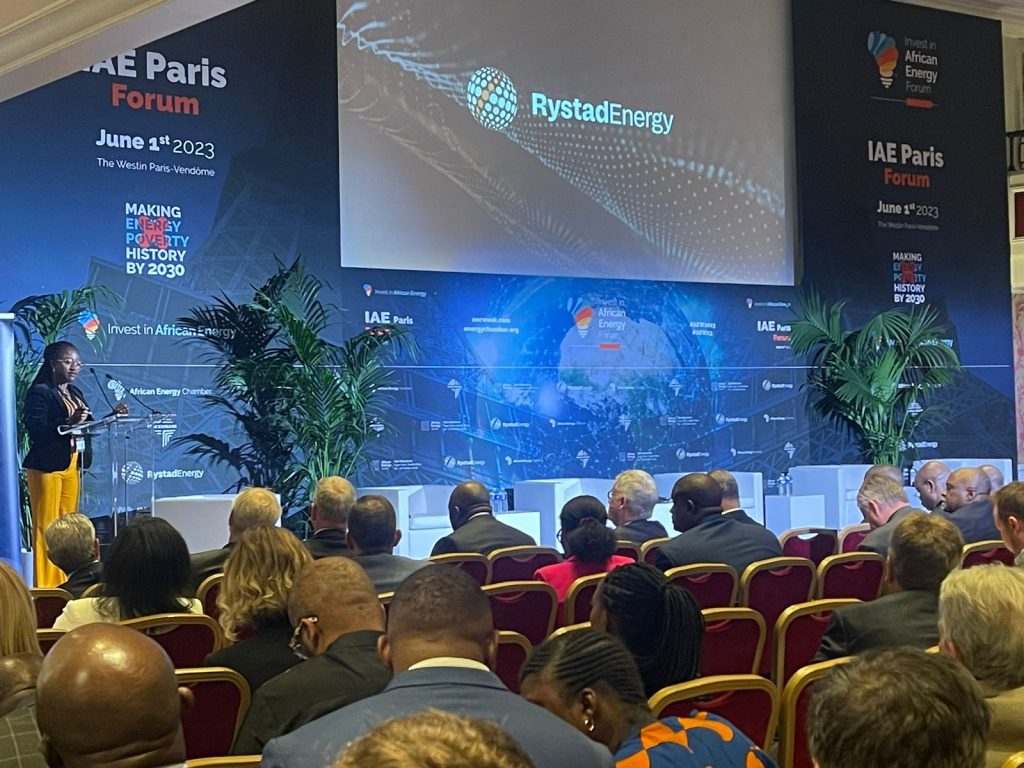PARIS, France, June 1, 2023/ — Energy data and consultancy firm Rystad Energy presented its analysis of Africa’s energy landscape on Thursday at the Invest in African Energy Paris Forum, hosted by the African Energy Chamber (http://www.EnergyChamber.org).
Noting that Africa remains vastly under-electrified compared to other regions, Senior Partner Per Magnus Nysveen pointed out in his opening presentation that Africa has 40% of global solar energy reserves, and that Africa has the opportunity to eradicate power poverty just as Asia has done in the past two decades. In 2000 Asia was the most power deprived region globally, with around 700 million people without power.
South Africa’s power deficit, he noted, had led to ‘load shedding’ (scheduled power cuts) every day so far in 2023, and that the power supply gap had tripled in five years. The country now has a large number of viable projects that need capital and would offer good returns to investors.
Bimbola Kolawole, Vice President and Head of Business Development for Africa, detailed the findings of the ‘The State of African Energy 2023’ report that is produced by the African Energy Chamber with data and analysis from Rystad Energy.
Kolawole noted that following the Ukraine invasion, Europe’s reliance on LNG imports has grown and African LNG producers, led by Nigeria, Egypt, and Algeria stand to benefit. Although Asian financial institutions currently fund most fossil fuel projects in Africa, European lenders will play a bigger role due to the continent’s demand for African gas.
“Last year was a bumper year for the continent’s exploration sector, with the Venus, Graff and La Rona discoveries all made offshore Namibia. These mega finds, along with South Africa’s large offshore gas discoveries, have driven increased operator interest in Southern Africa.” Kolawole also highlighted the large number of frontier acreages in the MSGBC region and West Africa, as well as the East African coast, that could yield further discoveries.
Over $33 billion in upstream investment was expected for 2022 and estimated growth in upstream expenditure in Africa between 2023 and 2025 is around $15 billion.
“It is particularly noteworthy that, while majors are looking to decrease their oil and gas exposure in West Africa, independents are picking up the portfolios being divested.”
Rystad expects that solar, hydrogen and onshore wind will be the driving forces in renewables investment in Africa in the 2030s and that between 2023 and 2035, Africa will contribute a fifth of global hydrogen generation. Injection of new power supply from renewables investment will be key to tackling the high number of people without access to electricity. Egypt, Morocco and Mauritania are expected to lead in the field of renewables.
Rystad Energy is a partner of the African Energy Chamber for its annual African Energy Week conference, to be held in Cape Town on 16-20 October 2023. Africa’s leading energy event is dedicated to eradicating energy poverty by 2030.
Distributed by APO Group on behalf of African Energy Chamber.

